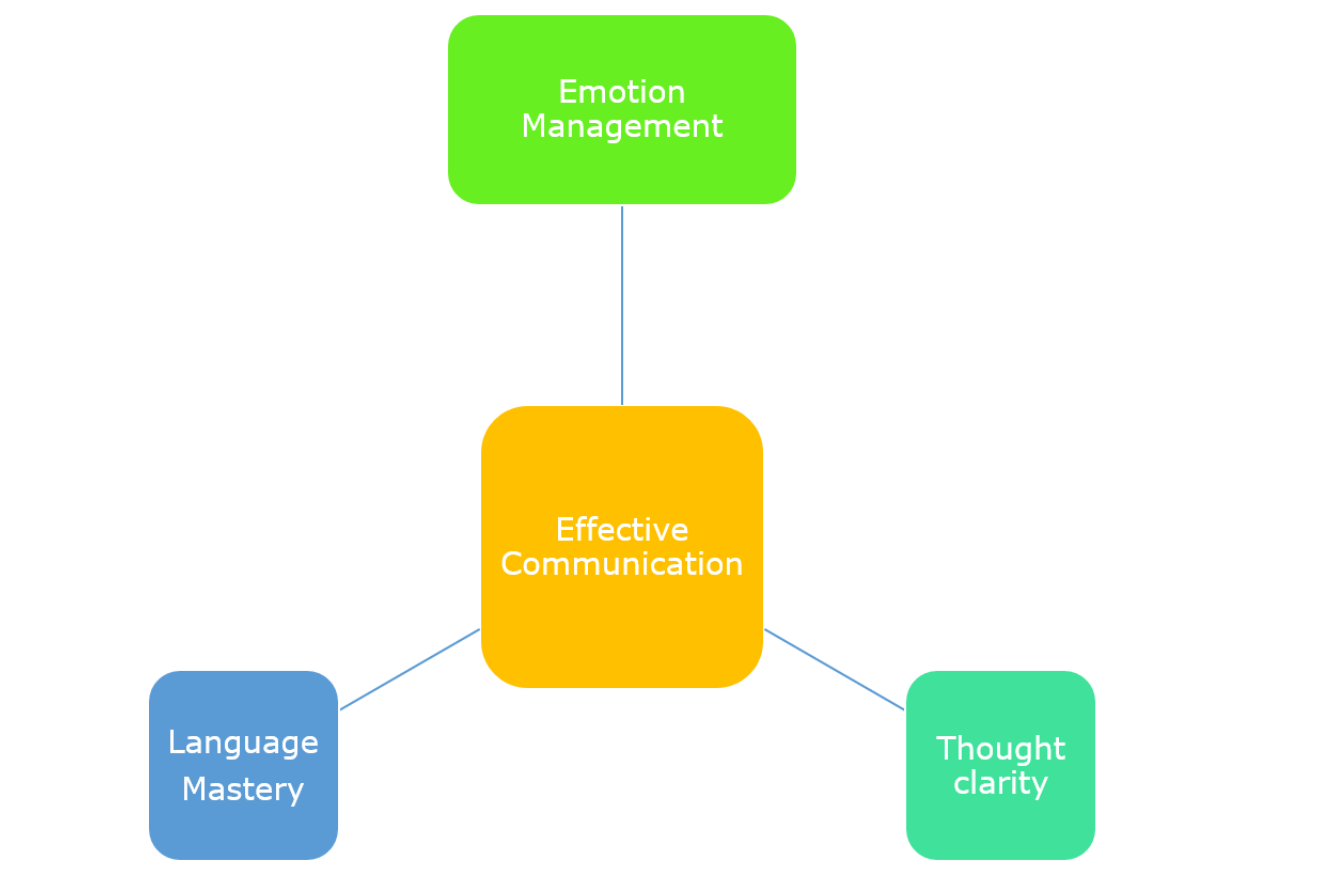Effective communication is not what and how much you are communicating to others; it is how well your purpose of communication is met.
For example, you are instructing your colleague to complete a task in a specific manner. The communication would be referred to as effective communication only when your colleague also understands the intention of your communication and completes the task as per that instruction.
Owning responsibility for EFFECTIVE communication
Our general tendency is that when the task is not completed as per our intended communication, we use to blame others for their misunderstanding or incapability.
The first step in improving your communication skill is to accept the responsibility for your communication process. It is not others misunderstand your communication. Still, you have not yet mastered the communication skill to modify your communication process depends upon the others. Since each one is different due to background and exposure, there is always a chance for misinterpretation.
How you are customizing your communication style to suit different people, and the environment is all about mastering the communication process.
For example, as business head, if you can communicate your organization goal to your second level management team and the operating team such a way that they understand in the same way and emotionally connect with the organization, then you are an effective communicator. It requires effort in mastering the communication process. That responsibility lies with you.
The point is that each one of us has more potential to improve the communication process, and first, we need to own the responsibility of effective communication than pointing others. When you own, you are open to learning and experiment on the communication process and techniques.
Let us discuss further on the communication process and techniques!
For example, you are instructing your colleague to complete a task in a specific manner. The communication would be referred to as effective communication only when your colleague also understands the intention of your communication and completes the task as per that instruction.
Owning responsibility for EFFECTIVE communication
Our general tendency is that when the task is not completed as per our intended communication, we use to blame others for their misunderstanding or incapability.
The first step in improving your communication skill is to accept the responsibility for your communication process. It is not others misunderstand your communication. Still, you have not yet mastered the communication skill to modify your communication process depends upon the others. Since each one is different due to background and exposure, there is always a chance for misinterpretation.
How you are customizing your communication style to suit different people, and the environment is all about mastering the communication process.
For example, as business head, if you can communicate your organization goal to your second level management team and the operating team such a way that they understand in the same way and emotionally connect with the organization, then you are an effective communicator. It requires effort in mastering the communication process. That responsibility lies with you.
The point is that each one of us has more potential to improve the communication process, and first, we need to own the responsibility of effective communication than pointing others. When you own, you are open to learning and experiment on the communication process and techniques.
Let us discuss further on the communication process and techniques!










